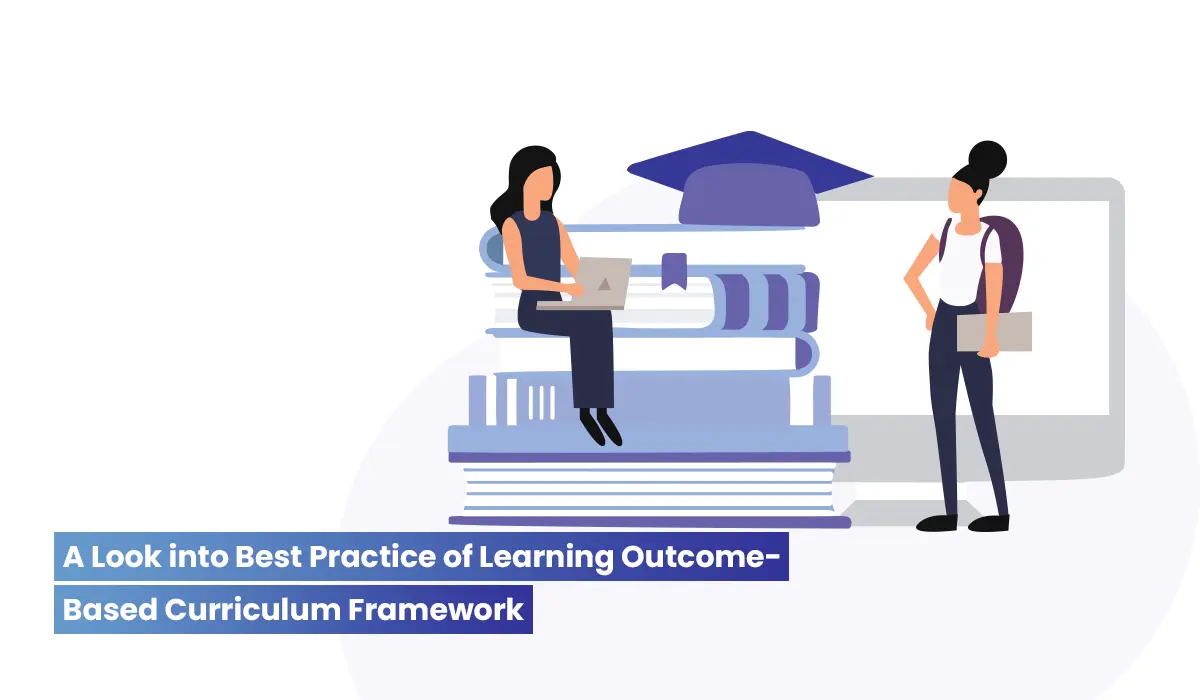Overview of Learning Outcome-Based Curriculum Framework (LOCF)
By coordinating curriculum with a set of expectations, talents, and skills, the Learning Outcome-Based Curriculum Framework (LOCF) transforms higher education. By ensuring that students acquire relevant, hands-on knowledge, this strategy raises educational standards and closes the knowledge gap between professional application and the rigid archaic theory. Let’s discuss some of its best approaches in this blog post.
Understanding Learning Outcome-Based Curriculum Framework
A newer form of educational strategy, the Learning Outcome-Based Curriculum Framework (LOCF) moves the emphasis from traditional material delivery to precisely specified learning objectives.
Objectives of LOCF
The term “learning outcomes and competencies framework” (LOCF) refers to the particular set of abilities, know-how, and proficiencies that students should possess at the conclusion of a course or program. Within this framework are three major objectives;:
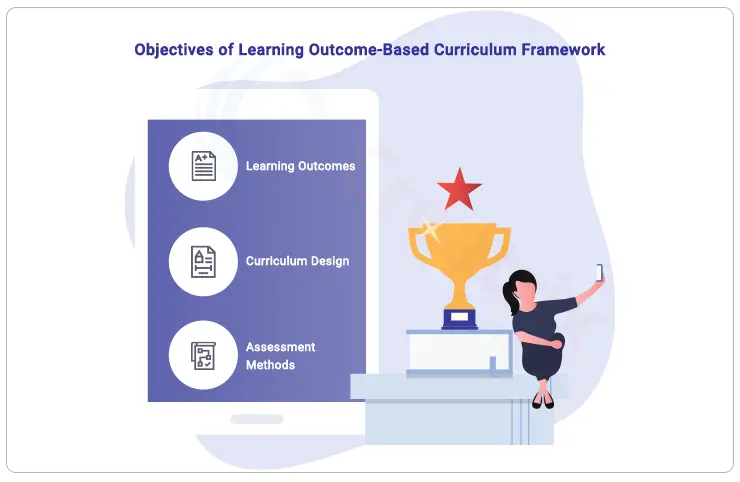
Students are guaranteed to acquire particular information and skills thanks to the Learning Outcome-Based Curriculum Framework (LOCF). For instance, LOCF may place more emphasis on practical skills like financial analysis or marketing strategy formulation than it would on purely academic principles in a business degree.
When creating curricula, LOCF organizes classes to meet these goals. To guarantee that students acquire practical skills, for example, courses in a healthcare program may combine classroom instruction with real clinical experiences.
The LOCF assessment techniques confirm that students have fulfilled these objectives. In an engineering school, for example, project-based assignments where students create and prototype solutions to real-world issues may be part of the evaluation process.
Benefits of Implementing Learning Outcome-Based Curriculum Framework
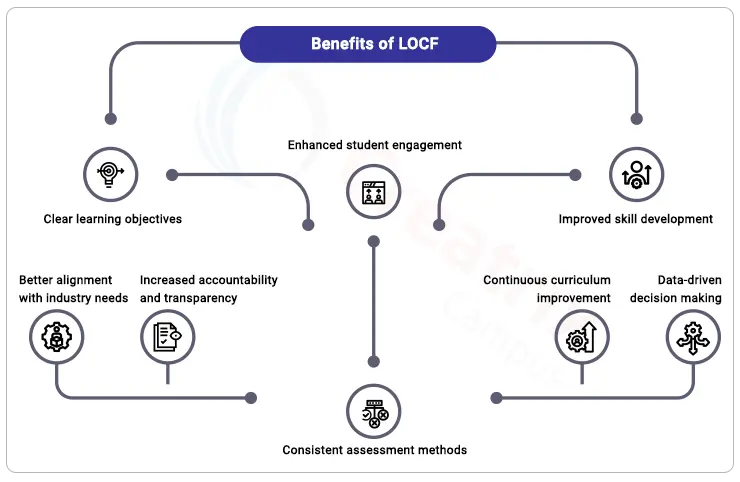
Better Clarity: Targeted and efficient teaching and learning are possible when both teachers and students have a clear knowledge of the intended goals.
Boost in Engagement: A higher level of engagement is attained when students recognize the connection between their education and future employment.
Assured Quality: Using input and results, quality assurance assists organizations in upholding high standards in education and in constantly refining their curriculum.
Best Practices for Implementing LOCF
Like a guidebook for academic achievement, there are a few fundamental principles that must be followed in order to successfully implement a learning outcome-based curriculum framework (LOCF):
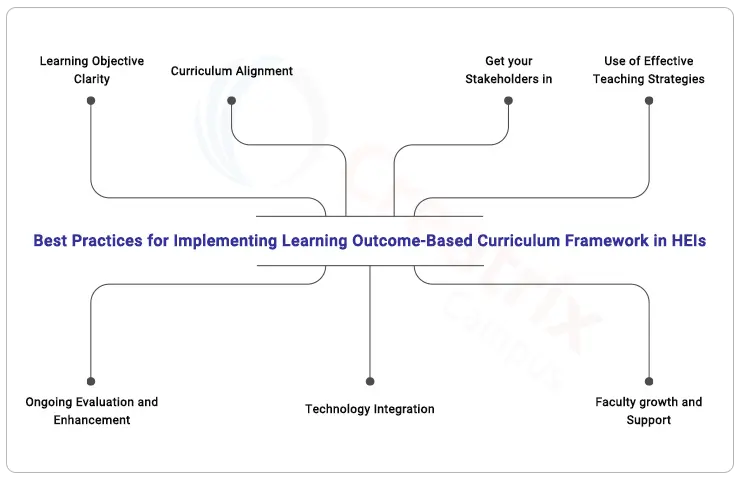
Learning Objective Clarity
This forms the fundamental to your curriculum framework! Clearly state the quantifiable learning outcomes that correspond to the program’s objectives and industry norms. For instance, in a computer science curriculum, the objectives may include things like problem-solving abilities or programming language fluency.
Curriculum Alignment
Make sure that the activities, course material, and evaluations all closely relate to the established learning objectives. This alignment ensures that pupils learn the desired abilities and information. For example, classes in a culinary arts degree have to concentrate on methods and culinary theory that are pertinent to the standards of the business.
Get your Stakeholders in
Involve academics, administrators, and professionals in the field while designing and reviewing the curriculum as a means of involving stakeholders. Their suggestions on curriculum design and development process will definitely improve program quality and guarantee relevance to current industry trends. Nursing curricula, for instance, can be updated to reflect new developments in healthcare practices through collaboration with healthcare practitioners.
Use of Effective Teaching Strategies
To accommodate a range of learning preferences and raise student engagement, use a variety of instructional techniques and technological tools. STEM could one of the best way to try out! For example, learning results in STEM subjects may be maximized by blended learning techniques that combine online courses with in-person laboratories.
Ongoing Evaluation and Enhancement
Provide strong procedures for evaluation in order to appraise program efficacy and student advancement. Frequent feedback loops enable curricular and instructional modifications to better match learning objectives. As an illustration, data analytics schools may incorporate industry certifications into their evaluation plan to verify the capabilities of their students.
Technology Integration
To enable smooth delivery and evaluation of learning outcomes, make use of learning management systems and instructional technology like Creatrix Campus. For instance, simulating real-world patient care scenarios with simulation software in nursing schools can improve the practical learning results.
Faculty growth and Support
To help faculty members apply LOCF successfully, offer them chances for professional growth. Teachers are better able to engage students and match their practices with established learning objectives when they get training on outcome-based teaching tactics and evaluation techniques.
Case Study in Higher Education: Outcome-Based Education (OBE) Implementation at the International University of Kuwait (IUK)
Discover how Creatrix Campus successfully implemented Outcome-Based Education (OBE) at the International University of Kuwait (IUK), enhancing efficiency and learning outcomes. This case study highlights:
Client Profile: IUK, a leading institution offering accredited programs and professional development. Timeline: Started in 2021 with a cloud-first approach and seamless integration of Creatrix software.
Success Metrics: Over 600 users onboarded, on-time and under budget implementation. Key Integrations: Microsoft Office and a streamlined payment gateway.
Challenges Addressed: IUK’s shift towards a digital campus and the need for OBE solutions.
Creatrix Solutions: Automated admissions, OBE software integration, curriculum design and development courses, curriculum design mapping, and improved recruitment processes.
Business Impact: Scalability with low-code design, simplified cloud adoption, and enhanced educational outcomes.
Practical Tips for Institutions Adopting Learning Outcome Based Curriculum Framework
Pay close attention to these helpful hints while implementing the Learning Outcome-Based Curriculum Framework (LOCF) to guarantee a seamless transition and optimize the educational impact:
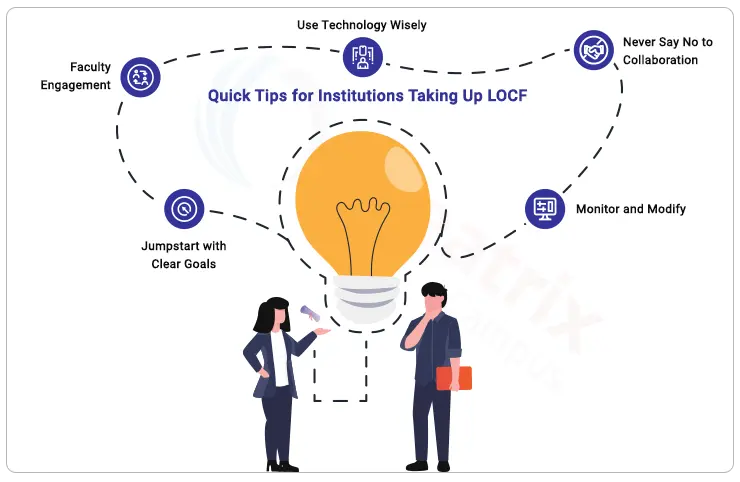
Jumpstart with Clear Goals: Establish definite learning objectives that correspond with the objectives of your school and the requirements of your pupils to begin with. Everyone will be in agreement right away because of this clarity.
Faculty Engagement: From the outset, involve your faculty in the process. They know a bunch of curriculum design models! When creating a curriculum that successfully achieves the specified goals, their knowledge and perspectives are invaluable.
Use Technology Wisely: It’s the age of digital technology and end-to-end higher education management solutions! Deploy the best instructional technology to simplify assessment processes, tracking, bettering student progress toward learning objectives.
Never Say No to Collaboration: Pull in departments and disciplines to achieve a unified approach to outcome-based education curriculum implementation.
Monitor and Modify: On the basis of input and evaluation findings, periodically examine and modify your curriculum. Your programs will always be successful and relevant thanks to this cycle of ongoing development.
Future Trends: Learning Outcome Based Education Curriculum Design Models
Here are the future trends in Learning Outcome-Based Education:
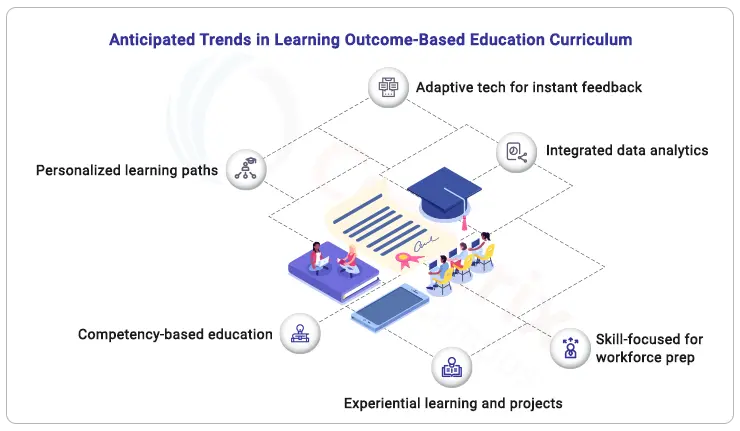
Embracing the Future of Education with Creatrix Campus Outcome Based Curriculum Mapping Framework
Accepting Education’s Future Improving educational results requires the implementation of a Learning Outcome-Based Curriculum Framework (LOCF). Unambiguous goals, enhanced skill development, and conformity to industry demands are guaranteed by LOCF. Adopt LOCF to promote responsibility, student involvement, and ongoing development in your university. All set to go forward? Learn how the curriculum design models for smooth integration, immediate feedback, and extensive data analytics provided by Creatrix Campus Outcome-Based Curriculum Management Solution may expedite your move to LOCF. Contact the leam more about the curriculum design models with our experts now!
#Learning #Outcome #Based #Curriculum #Framework #Higher #Education






